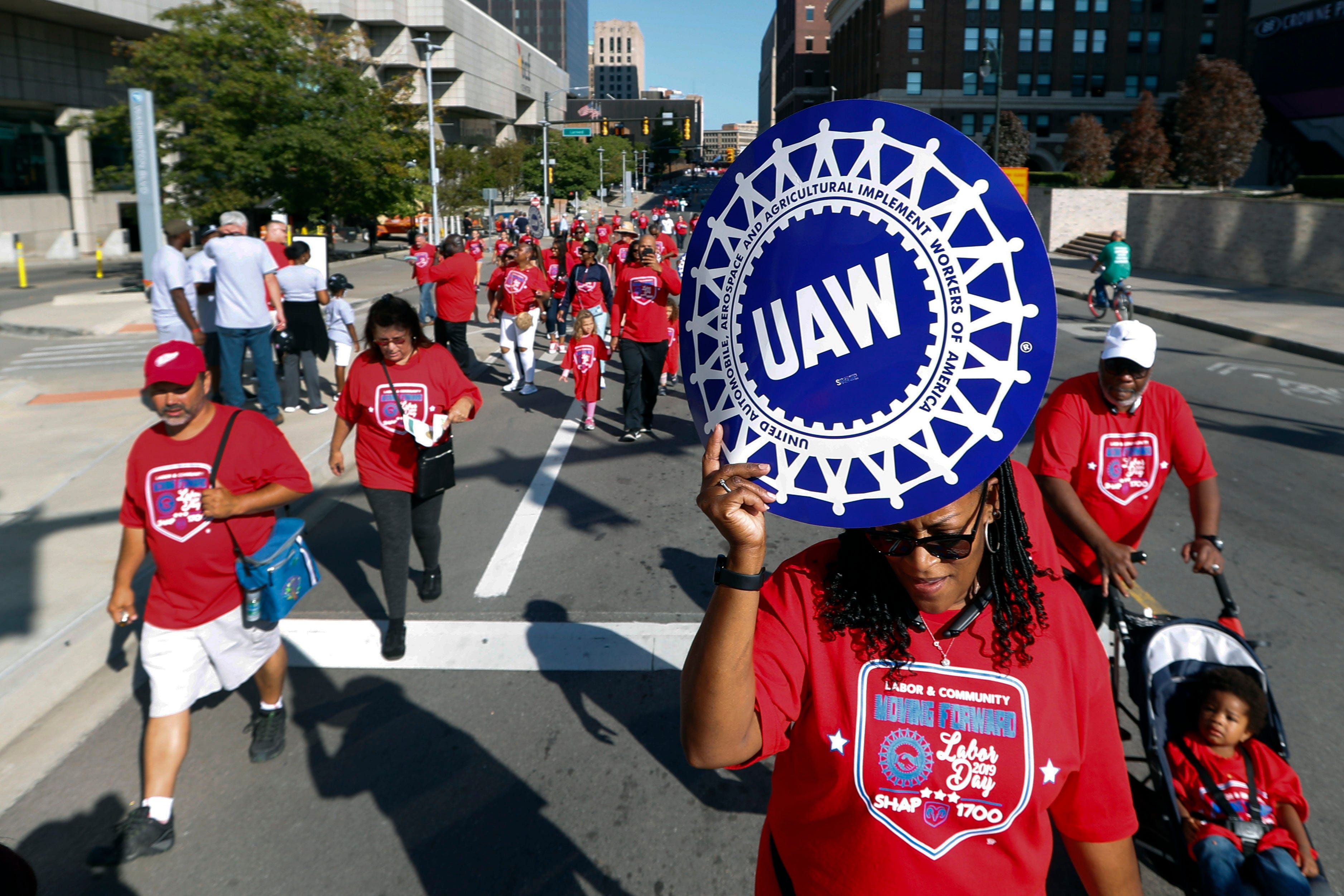Howes: UAW demands + prosperity + GM cost-cutting = strike?
 Daniel Howes
Daniel Howes
Bargainers for the United Auto Workers and General Motors Co. are bearing down on a deadline of 11:59 p.m. Saturday, and the stakes in this year’s talks keep growing.
Union demands for job security, higher base wages and retaining arguably the best health care coverage in the private sector are certain to clash with GM's plan to negotiate the shutdown of four U.S. plants and its push to close the cost gap with non-union foreign automakers operating mostly in the American South.
Timing and circumstance don't help. The automakers aren't emerging from federally induced bankruptcy or the Great Recession. They're on a run of solidly profitable years and record profit-sharing payouts amid strong sales years, with 2018 tallying 17.2 million cars, trucks and SUVs sold in the States.
It's not a cop-out to say both sides have a point. A new paper from the Ann Arbor-based Center for Automotive Research says GM's all-in hourly labor cost is $13 an hour higher than the "estimated weighted average of U.S. international producers," i.e., non-union rivals. The gap for Ford Motor Co. is $11 an hour. And for Fiat Chrysler Automobiles NV, it's $5 an hour.
This is precisely the competitive disadvantage that two of Detroit's three automakers failed to close in bankruptcy a decade ago or in the bargaining rounds that followed. It's also what makes an hourly job in a UAW-presented plant so attractive — the wages, the benefits and the prospect for big profit-sharing payouts are pretty much unparalleled in American private industry.
Yet in inflation-adjusted terms, hourly wages for production workers in vehicle manufacturing have declined 16% since 1990, according to government statistics cited by CAR, even as annual health care costs for GM and Ford tally more than $1 billion.
UAW members at GM and Ford “have received their largest-ever profit-sharing payouts during the past three years,” CAR Vice President Kristen Dziczek writes in the white paper. “Since 2011, UAW-Detroit Three profit sharing checks averaged over $6,600 per worker at each of the companies — the equivalent of $3.18 per hour at each of the companies — and GM’s record-setting $12,000 profit-sharing check in 2017 equates to an additional $5.77 per hour.”
Everybody's been making money — executives and the auto companies, managers and hourly workers. Since 2010, GM says on its labor talks website, its hourly workers have collected an average of $80,500 in profit-sharing payouts. And it says "GM’s average hourly employee earns about $90,000 per year before benefits."
And yet, observers predict, a UAW strike against GM is more likely than not come this weekend. Credit GM's push to contain costs and reduce underutilized plant capacity in Baltimore, northeast Ohio and two plants in southeast Michigan. And credit the union's determination to make GM pay — literally and metaphorically — for its move last November to starve four plants of job-saving product programs.
That and the nagging sense that it's time for a fight. To show GM that it can't push the union around, that it can't essentially defy the plant-closing moratorium in the existing contract and label targeted facilities "unallocated." Two already have stopped production: Warren Transmission in southeast Michigan and Lordstown Assembly in northeast Ohio.
Complicating the calculus is the continuing federal investigation into union corruption that has netted nine convictions and prompted the FBI and other investigators to raid the homes of UAW President Gary Jones and his predecessor, Dennis Williams. The crackdown is fueling suspicion that the union's brass is more interested in lining its pockets than safeguarding the interests of its dues-paying members.
A strike against GM, the current bad-boy of the Detroit Three, theoretically could counter those suspicions. But not for long. Once a strike is settled and a contract ratified, the feds would continue their roll-up of union corruption that appears to target the highest levels of the UAW.
Now, there is a general sense out there that "nobody cares" anymore what happens in these auto talks — not the national media removed from the industrial heartland it cares about only at election time, not social progressives who see rounds of union bargaining preserving outsized economic gains instead of producing new social policy to be replicated elsewhere.
The Golden Age may be gone, but there's still a lot of gold to be fought over in these auto talks covering nearly 150,000 working men and women. It's measured in dollars, in competitiveness, in product commitments to existing plants, in job-security assurances than can be broached only under the most dire circumstances.
This isn't one of those times.
daniel.howes@detroitnews.com
(313) 222-2106
Daniel Howes’ column runs Tuesdays, Thursdays and Fridays. Follow him on Twitter @DanielHowes_TDN, listen to his Saturday podcasts, or catch him 3 and 10 p.m. Thursdays on Michigan Radio’s “Stateside,” 91.7 FM.